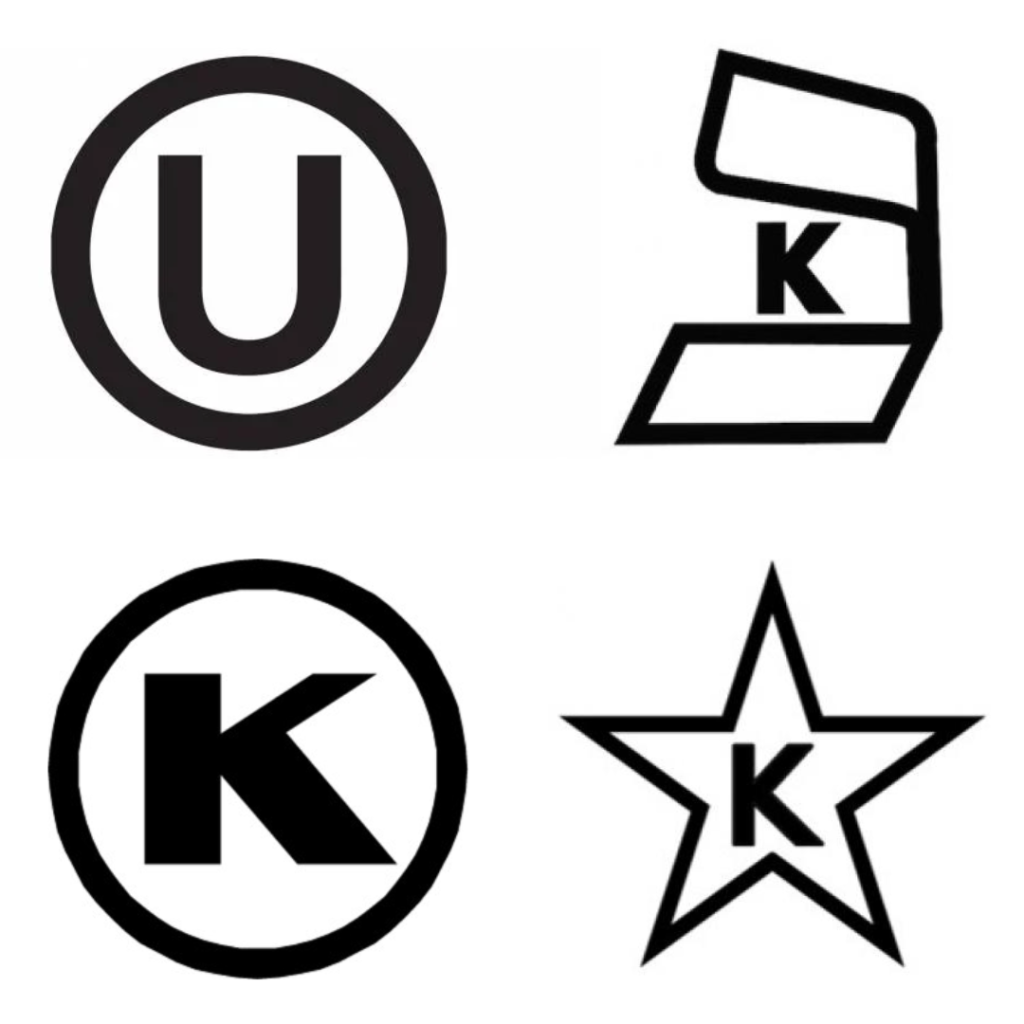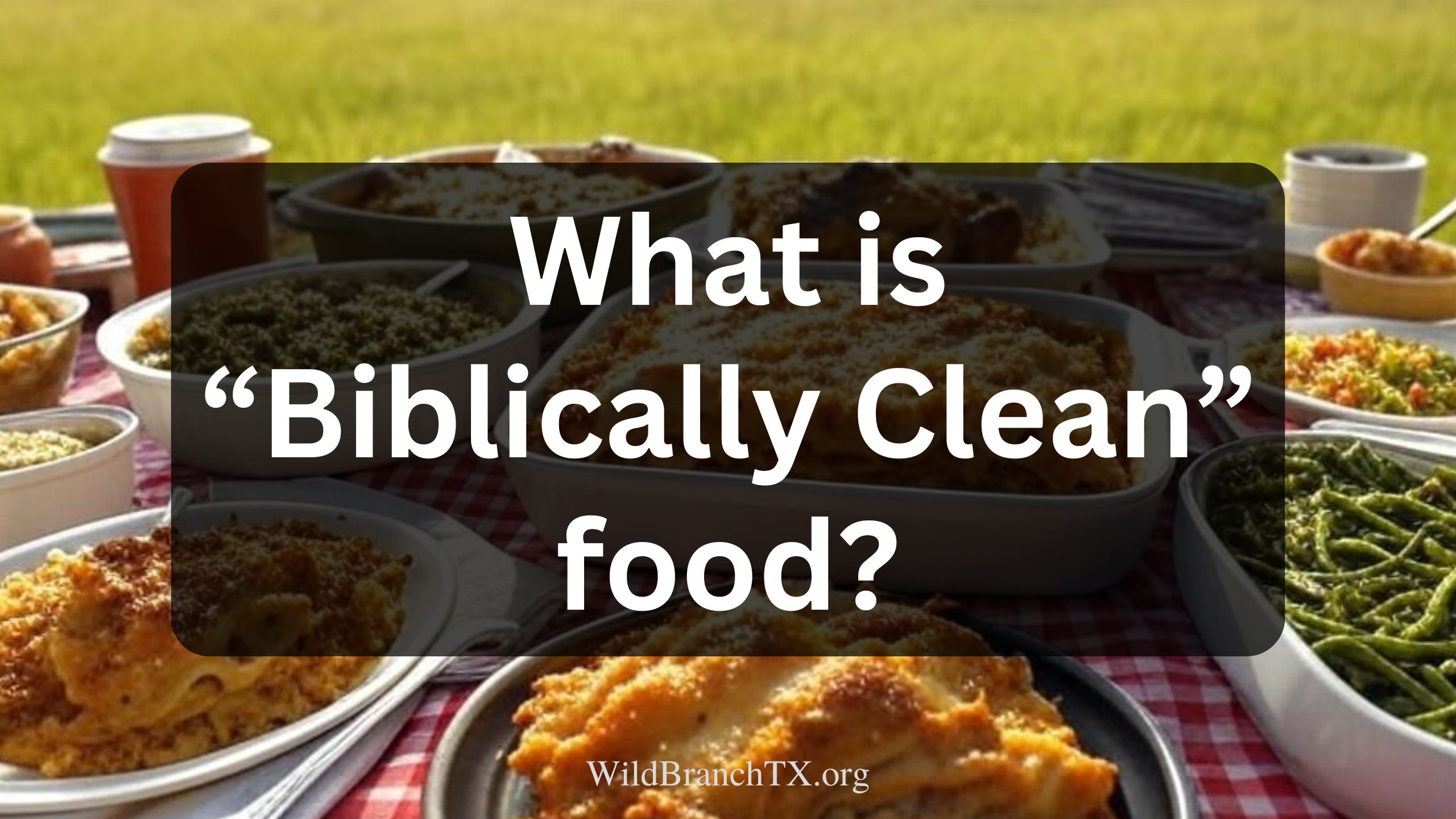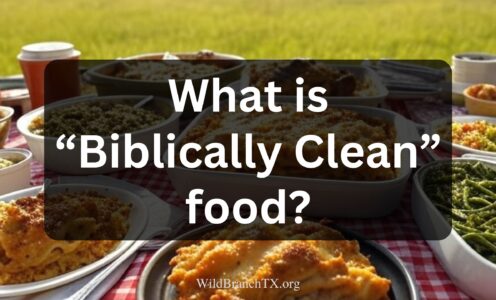There are many instructions in God’s Law (aka the Torah or the Law of Moses) that we are unable to follow, because there is no Temple and we don’t live in Israel, or that don’t apply to all of us because we aren’t all men, women, sons of Aaron, etc. However, we believe that the Law represents the standard of behavior by which God desires all people to live, not because anyone can earn eternal salvation by it, but because he loves us and wants us to live better lives.
Accordingly, we only serve biblically clean food at our gatherings. Our personal opinions might differ on some details of what “biblically clean food” means, and we aren’t going to dictate to anyone how they eat at home. For the purposes of all Wild Branch Community events, we define “biblically clean” as described below.
Allowed
- Meat – God explicitly authorized eating meat, so we do not mandate or recommend vegetarianism. However, he did give us a list of animals that are food and a list that is not. See below for more details.
- Plants – All fruit, vegetables, grains, and nuts. Please be aware of allergens and let people know if a dish contains common allergens, such as wheat or peanuts.
- Land Animals – Any land animal that both chews its cud and has a split hoof (cows, sheep, deer, etc.).
- Water Animals – Any fish that has both fins and scales (trout, cod, salmon, etc.).
- Flying Animals – Most commonly eaten birds, such as chickens and turkeys, are acceptable. See below for forbidden birds.
- Insects – Locusts and grasshoppers are acceptable for food, but it’s unlikely that anyone will eat them short of a dire emergency.
- Dairy – The milk of food animals is also permissible. We don’t forbid the mixing of dairy and meat so long as you aren’t cooking a young animal in its mother’s milk.
Not Allowed
- Blood – God forbids the consumption of blood, so we don’t eat or drink anything with blood as an ingredient, such as blood sausage or blood pudding. Any food animal must be properly bled at the time of its death.
- Food Animals – Any land animal that does not both chew its cud and have a split hoof (pigs, reptiles, rabbits, etc.). This includes all products derived from these animals, such as gelatin and lard.
- Water Animals – Any water creature that does not have both fins and scales (catfish, shellfish, shark, etc.). Fish that have small scales in the juvenile stage, but lose them as adults, such swordfish and marlin.
- Flying Animals – Birds of prey, carrion birds, long-legged wading birds, completely flightless birds (ostrich, penguin, etc.), and any other flying animal listed in Leviticus 11:13-19.
- Insects – Any insect or bug that does not have two pairs of front legs and a rear pair of longer jumping legs (beetles, moths, spiders, etc.).
Edge Cases
As a community, we do not forbid any of the following at our gathering, and generally follow rabbinic recommendations. However, please be understanding and show kindness to anyone who disagrees.
- Mushrooms – Some people believe that mushrooms are not technically “seed bearing plants” per Genesis 1:29.
- Water fowl – Some people believe that Leviticus 11:19 forbids all aquatic birds, including ducks and geese.
- Tuna – Tuna have very small scales on only a small part of their bodies, and so many people consider them unclean.
- Cricket – There is some disagreement among translators as to whether crickets are included in the list of food insects in Leviticus 11:20-23. Note that “four feet” in that context is a Hebrew idiom that essentially means “multi-legged”.
It’s important to read the ingredients on all store-bought food and to understand what the various words mean.
For example, lard is pork fat, but could be listed as gelatin, animal fat, or manteca. Cochineal beetles could be listed as carmine, cochineal extract, natural red 4, or crimson lake. Other unclean insect ingredients could be listed by their scientific names, which makes them difficult to identify.
It’s usually safe to assume that anything labeled “kosher” or using one of the following logos is clean, since the rabbinic kosher rules are more strict than the Bible’s rules. These symbols represent four of the most popular kosher certification agencies, but there are many others.

If you are uncertain about a particular food item or ingredient, please feel free to ask. We are not trying to dictate your personal diet, and so there will be no judgment. We appreciate honest questions!

